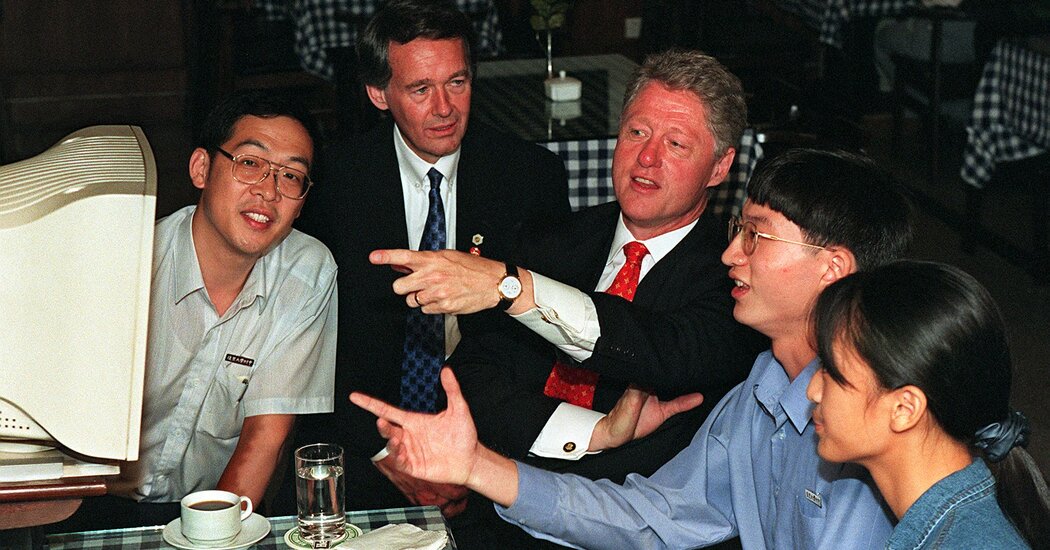Consider Kurt Campbell, a veteran Asia hand and an early skeptic of the decades-long elite consensus that aiding China’s economic growth and enmeshing it in the U.S.-led world order was, as he puts it, “almost a mystical thing that must be sustained.” Campbell served in the Clinton and Obama administrations; overtime, he came to advocate a more aggressive approach to China. But his arguments went largely unheeded — until, strangely enough, the Trump era.
One theme that emerges in “New Cold Wars” is the surprising continuity between the Trump and Biden administrations when it comes to China. With Campbell as a top adviser on China, Biden has largely kept in place Donald Trump’s trade-war tariffs on Chinese goods, amped up Trump-era export restrictions to slow China’s technological progress and talked tough on Taiwan (albeit not with Trump’s bluster). Ironically, Sanger writes, “a handful of Trump’s aides laid the foundation for one of the signature efforts of the Biden administration.”
That said, Sanger draws a clear contrast between the two presidents. Biden is intensely focused on the gravity of the threats facing America. At a dinner for elite donors in 2022, he mused darkly — and in detail — about the ways that Putin could spark nuclear Armageddon. (“The room went silent,” Sanger writes.)
Trump has different preoccupations. In 2019, he asked Randall Stephenson, then the chief executive of AT&T, for a briefing on the threat posed by Chinese technology. According to Stephenson, Trump spent 45 minutes “riffing on how men got into trouble,” Sanger writes. “It was all about women and private planes.” A few minutes into Stephenson’s presentation, Trump shared his conclusions: “This is really boring.”
Sanger also deftly illustrates the challenges of deterrence. In the fall of 2022, at the peak of American alarm about Putin’s nuclear brinkmanship in Ukraine, Lloyd Austin, the U.S. secretary of defense, warned his Russian counterpart, Sergei Shoigu, that if the Russians used a tactical nuclear weapon, the United States would directly intervene and destroy, as one official recalls to Sanger, “what is left of your military in Ukraine.”


